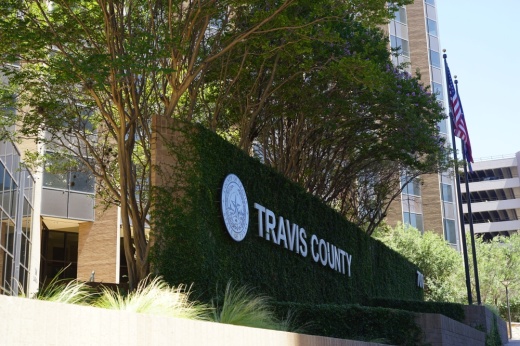On July 26, Travis County commissioners voted to conduct a performance audit on Central Health—a health district that is designed to use taxpayer money to provide health care for low-income county residents—after members from the Austin Taxpayers Union, the NAACP and the League of United Latin American Citizens alleged Central Health has lacked financial transparency.
In March, the NAACP and the LULAC released a “red flags” report outlining Central Health’s lack of financial controls and decreased health care services during the pandemic.
Among several concerns, the report shows Central Health has grown its contingency reserves—money set aside for potential financial deficits—from $36.6 million to $298 million in the past five years, a 243% increase. The report also says Central Health’s non-health care costs are 12 times higher than they were when presented to Travis County commissioners, and that Dell Medical School has received $280 million from Central Health with no public record of how those funds were used to provide health care to the indigent.
Commissioners recapped several of the complaints listed in the report, but neither commissioners nor Central Health representatives responded to the allegations. At a previous meeting, several commissioners expressed frustration with Central Health's progress.
“It must not be seen as an attack on anyone, but rather an effort to receive full transparency with Central Health,” said Nelson Linder, president of the Austin NAACP branch.
The audit will be procured by the Travis County Commissioner Court and reimbursed by Central Health, according to Commissioner Margaret Gomez. Commissioners will meet Aug. 2 to discuss the details of the audit.
“A lot more could be done to offer more appointments and more treatment,” said Brenda Bellocchio, a former dentist at Community Care, a provider for Central Health.
Bellocchio said Community Care could have expanded hours of operation and staggered shifts to provide more health care services.
“Sometimes I would be the only person in the office who could interpret Spanish,” Bellocchio said, adding that she found herself acting as an assistant or an interpreter instead of focusing on her primary duties as a dentist. “In my experience, it was not very efficiently managed.”
Despite support from the Austin Taxpayers Union, the NAACP and the LULAC, other community groups, such as the Advocates for Social Justice Reform and the Texas Anti-Poverty Project, spoke at the July 26 commissioners court meeting against performing the audit, pointing to Central Health’s scheduled performance review in 2023.
“[It’s a] complete waste of money. Within six months there's gonna be another audit, when that could go to patient care,” said Ofelia Zapata from the Texas Anti-Poverty Project, an organization independent from Central Health.
According to Maria Emerson from Advocates for Social Justice Reform, the audit will be a distraction, saying that the majority of Central Health patients have been satisfied.
Ted Burton, the Central Health vice president of communications, said he does not have specifics on how the audit will be distracting, as the process will require attention from multiple sectors of Central Health. According to Burton, Central Health undergoes a financial audit annually, and every year since 2005 it has come out clean.





